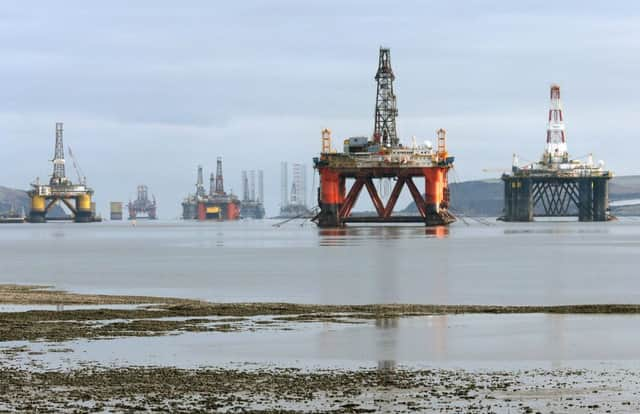North Sea oil and gas sector '˜a net drain on UK finances'


The slump in oil prices meant the sector received £396m in 2016, net of tax payments. This is the first year that the North Sea industry has cost the exchequer more than it has contributed, analysis by Carbon Brief found.
The industry’s contribution to the exechequor was £10 billion as recently as 2011.
Advertisement
Hide AdAdvertisement
Hide AdIn total, the sector has contributed in the region of £190bn in tax revenues since the 1960s.
“Since the government passed the Continental Shelf Act in 1964, billions of barrels of oil and gas have been extracted from reserves under the North Sea,” the report said.
“Now, some of the largest fields are coming to the end of their life. The rigs, pipelines and other infrastructure built to exploit them must be safely decommissioned. Cleaning up this legacy will cost an estimated £47bn out to 2050, according to the UK’s Oil and Gas Authority (OGA).”
“Companies can reclaim tax paid in previous years, in order to cover this spending. Oil prices are still far below recent highs and the government has introduced generous tax breaks, worth £2.3bn, designed to encourage new investment in the North Sea.
“Meanwhile, estimates of the total cost of decommissioning are highly uncertain, with the OGA giving a range of plus or minus 40% on its £47bn figure. One 2016 study said taxpayers could face a £75bn bill. Other studies have speculated that the costs could wipe out all future North Sea tax revenues, potentially damaging the economic case for Scottish independence. As the Financial Times noted in January, the North Sea industry “risks becoming a net drain on UK resources as it enters its sunset years”.
“Having reached highs of £12bn revenue in some years, this moment has already arrived, with the North Sea for the first time becoming a net drain on the public finances and costing £0.4bn (£396m) in calendar year 2016. Future revenues are uncertain, see below. Either way, the sector is no longer the cash cow chancellors have come to expect over the past several decades.”
North Sea oil has long been a central pillar of the SNP’s economic vision for an independent Scotland.
But the amount of North Sea oil still to be extracted is less than half of the figure the Yes campaign predicted ahead of 2014 independence referendum, an industry expert said in March.
Advertisement
Hide AdAdvertisement
Hide AdProfessor Alex Kemp of Aberdeen University predicted 11 billion barrels of oil equivalent (boe) could be recovered from the UK continental shelf from 2017-2050, using a “lower for longer” price modelling system.
The Scottish Government’s white paper on independence, published in 2013, said 24 billion barrels were recoverable.
